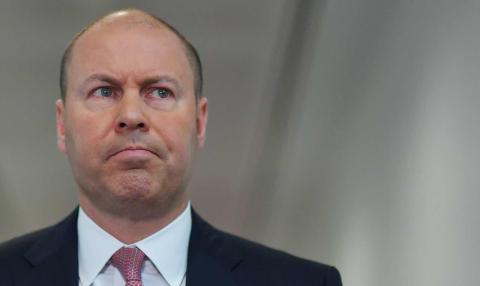There’s been a good deal of mixed messaging coming from Australia's Deputy Prime Minister Barnaby Joyce recently.
This week he made headlines by declaring to an audience (which included the Chinese ambassador) that Labor's policies for insisting on rules concerning vegetation management and land clearing on private property amounted to communism. As Joyce described it, Labor’s position was the 'dispossession of the individual for the community benefit without the community paying for it...I thought there is a word for this – it’s called communism'.
Yet just six months ago Joyce welcomed the decision of his colleague, Treasurer Scott Morrison, to step in and prevent S Kidman and Co’s owners from selling their cattle station assets to the highest bidder. At the time that was the Chinese company Shanghai Pengxin. There was certainly no talk about Kidman’s owners deserving compensation for their private property rights being trampled upon. Instead, Treasurer Morrison’s decision was portrayed as being all about protecting the national interest and standing up for the wishes of the average Australian.
There’s irony in the economics of the two cases. Land management rules actually stem from a firm economic justification, even if bureaucrats and other interest groups might sometimes take this justification a bit far. When a private land owner clears their property, an environmental cost is conceivably borne by the rest of the community. In the jargon of economic theory, the private land owner’s decision yields a negative externality. In such cases, government intervention can potentially bring about a more efficient outcome for society as a whole.
But how the rest of the community suffers if the Kidman properties are sold is not at all clear. Joyce and many others appear to take the position that the community only suffers when privately-owned assets are sold to foreign buyers. In his address he also remarked that 'the love of one’s country is best delivered when you own that country…there is one thing people are not keen to do and that is die for a rented country'.
The inconsistency of this position was highlighted in an observation made in 2012 by former Treasury Secretary, Ken Henry: 'I hear often people in the bush are outraged about foreigners buying their land - well, they're the people selling the land. I don't know what form of cognitive dissonance squares that circle...but obviously there's something strange going on.'
In 2009, when Joyce was leader of the Nationals in the Senate, no concerns were raised when James Packer sold his cattle stations (covering more than 5.6 million hectares and worth more than the Kidman property) to a foreign buyer. He wasn’t alone of course: the deal received Foreign Investment Review Board tick of approval without any trouble at all and barely made the news.
Mr Packer sold to a UK company whereas S Kidman and Co wanted to sell to a Chinese company. Minister Joyce has previously objected to Australian agricultural land being sold to foreign companies that are government-owned, but Shanghai Pengxin isn’t. In any case, most of the Kidman land holdings are leased, so ownership would have stayed in the hands of Australian governments.
Those quick to say that the community suffers when Australian private owners sell land and agribusiness assets to foreign buyers also seem to miss the community benefits. Earlier this year another Chinese company, Moonlake, was given approval to buy Australia’s biggest and oldest dairy farm, Tasmania’s Van Diemen’s Land Company (VDL). At the time Minister Joyce wasn’t too happy about it but conceded that in this case 'it’s hard to have an argument about foreign ownership when it had always been foreign owned'.
Now, just eight months after the deal, VDL is preparing to start exporting ten million litres of fresh milk direct from Hobart to Ningbo, just south of Shanghai. The New Zealand company that previously owned VDL never managed to achieve such a breakthrough. Perhaps it has something to do with Ningbo being Moonlake’s hometown, so it can use its local knowledge and connections to get VDL’s product on Chinese supermarket shelves. Ten million litres is 10% of VDL’s annual milk output; there’s only one milk processor in Tasmania big enough to meet the demand. Moonlake is now talking about investing more in VDL so that it can expand its operations.
Despite the scale, don’t think VDL’s milk will be sold into China as some sort of bulk commodity. This is being pitched at the premium end, with rigorous controls throughout the supply chain to ensure that Chinese consumers can trace the product from the 'cow to carton'.
Is the Tasmanian community outraged? Far from it. Tasmanian Premier Will Hodgman was thrilled: 'This is a really exciting opportunity using our logistics and ability to take Tasmania to the world. It’s a neat fit. We couldn’t imagine this just a few years ago.' The local mayor said that it was the most significant development in Tasmania’s dairy industry 'since I was working on a farm in 1960'.
It’s not just Tasmania. Western Australia is also cutting red tape to try to attract more Chinese investors into agriculture. While some in Sydney, Melbourne and Canberra might complain about the Chinese company Shanghai Zhongfu becoming a major land owner, the local Kimberley community has been its biggest supporter, seeing its investment and commitment as vital to realising the region’s potential.
Joyce is right about one thing: communism usually means a dud deal for Australian farmers, and the community. Chinese capitalists understand that too.
Photo: Getty Images/Stefan Postles
